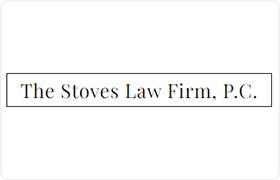Dora Misdemeanor Lawyer, Alabama, page 7
Sponsored Law Firm
-
 x
x

Click For More Info:
-
The Stoves Law Firm, P.C.
9 Office Park Cir Suite 105 Birmingham, AL 35223» view mapCriminal Defense Legal Expertise You Can Rely On
The Stoves Law Firm, P.C. provides outstanding Criminal Defense and Litigation services to individuals and businesses throughout the State of Alabama.
800-818-9390
Not enough matches for Dora Misdemeanor lawyer.
Below are all Dora Criminal lawyers.
Willie Florence
Social Security -- Disability, Divorce, Criminal, Accident & Injury
Status: In Good Standing *Status is reviewed annually. For latest information visit here Licensed: 25 Years
Linda Ann Munson Fiveash
Criminal, Divorce & Family Law, Estate, Traffic
Status: In Good Standing *Status is reviewed annually. For latest information visit here Licensed: 30 Years
Stephen W. Shaw
Mass Torts, Estate Planning, Employment Discrimination, Divorce, Criminal
Status: In Good Standing *Status is reviewed annually. For latest information visit here Licensed: 45 Years
James Richard Esdale
Criminal, Criminal, Collection, Accident & Injury
Status: In Good Standing *Status is reviewed annually. For latest information visit here
Rukeya Lynn McAdory
DUI-DWI, Divorce, Wills & Probate, Estate Planning
Status: In Good Standing *Status is reviewed annually. For latest information visit here
William N. Clark
Mass Torts, Estate Planning, Employment Discrimination, Divorce, Criminal
Status: In Good Standing *Status is reviewed annually. For latest information visit here Licensed: 54 Years
John Alan Baty
Criminal, White Collar Crime
Status: In Good Standing *Status is reviewed annually. For latest information visit here Licensed: 28 Years
Lauren Anderson
DUI-DWI, Criminal
Status: In Good Standing *Status is reviewed annually. For latest information visit here
Gerald Stephen Topazi
Lawsuit & Dispute, Criminal, Business & Trade, Personal Injury
Status: In Good Standing *Status is reviewed annually. For latest information visit here Licensed: 62 Years
Matthew Scott Swerdlin
Criminal
Status: In Good Standing *Status is reviewed annually. For latest information visit here
 Jay Stoves Birmingham, AL
Jay Stoves Birmingham, AL Practice AreasExpertise
Practice AreasExpertise